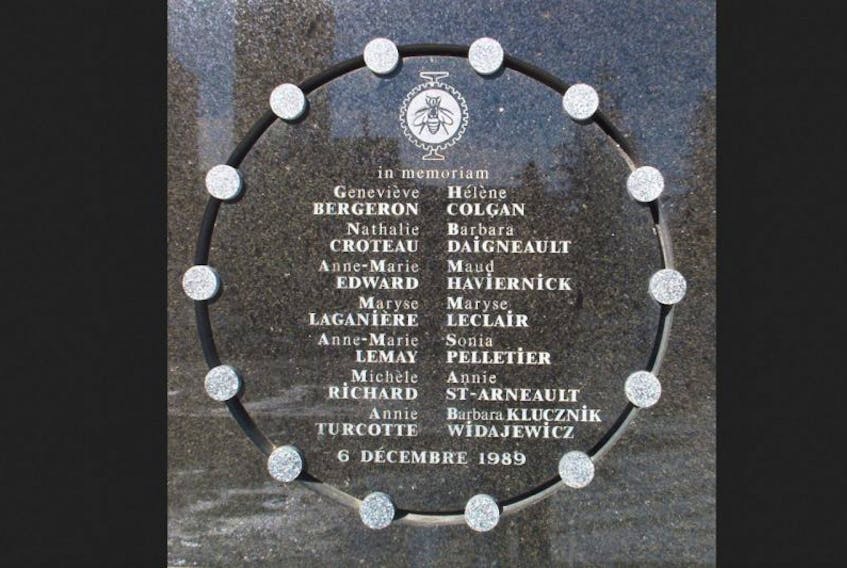Thirty-one years after a misogynist killed 14 young female engineering students at Montreal’s École Polytechnique simply because of their gender, are we any closer to ending irrational hatred against women?
Though awareness has been raised, and progress made, sadly that goal remains elusive.
The continuing disappearance and murder of Indigenous girls and women. The 2018 Toronto van attack by a self-described incel (for “involuntarily celibate”) that left 10 people dead, most of them women. The mass shootings in Nova Scotia last spring by a serial domestic abuser which left 22 dead, the majority women. The seemingly never-ending cases of domestic abuse and homicides, including murder-suicides.
On and on it goes, tragedy after tragedy.
What that tells us is that though much has been done, it’s been far, far from enough. That’s not at all a criticism of those who have worked so hard to tackle misogyny and violence against women. We salute and thank them. Rather, it’s more an acknowledgement of the depth of the remaining darkness.
On that note, we welcome the announcement Friday by the region’s Atlantic premiers that they’ve established an Atlantic Domestic Homicide Review Network — the first regional body of its kind in Canada — to begin work immediately to help prevent domestic homicides, in which the majority of victims are women.
The effort promises to “enhance information sharing, ensure joint consideration of existing system responses and prevention efforts, as well as learn and identify best practices, and areas for improvement and collaboration across the region,” according to a statement by the Council of Atlantic Premiers.
Meanwhile, on Thursday, referring to the upcoming anniversary of the Montreal massacre, Prime Minister Justin Trudeau pledged to complete his government’s steps against growing gun violence in Canada through widened weapon bans.
The problem, as the National Police Federation rightly observed recently, is that such restrictions don’t address the bigger problem — the growing use of illegal firearms in violent crimes, including murders.
For example, three of the four weapons used by the killer in Nova Scotia last April were illegally imported from the U.S. The NPF is calling for better legislation and more funding to tackle firearms smuggling, more secure borders and gang diversion strategies.
Limiting the ability of those who want to hurt women and others to get their hands on firearms is important, of course, but more fundamental is challenging the misogynist mindset.
As the April, 2018 van attack in Toronto showed, those who wish harm to women can and will turn to other means. Recently, Ruth George, a 19-year-old college student in Chicago walking home after a campus event was strangled after ignoring a stranger’s catcalls. A 26-year-old man has been charged with her death.
Then there is the torrent of misogynist abuse that many women must continually face on social media.
Clearly, education must play an important role in confronting such hatred.
The anniversary of the Dec., 6, 1989 massacre will be marked — this year by many online vigils due to the ongoing pandemic — on Sunday, the National Day of Remembrance and Action on Violence Against Women.









